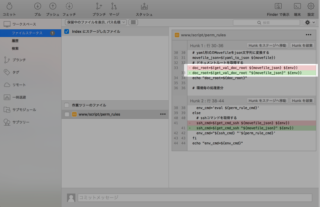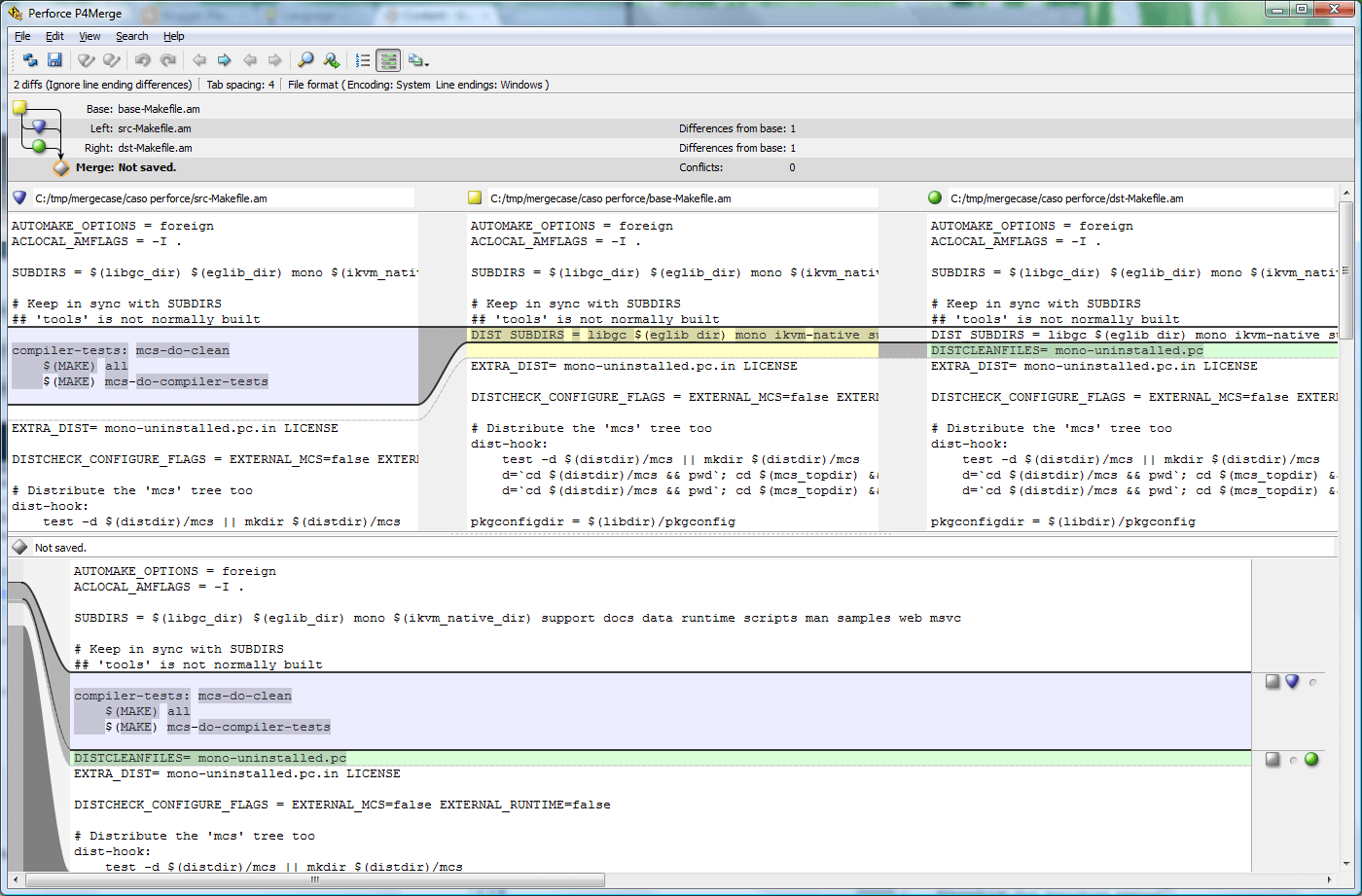
Note: I had a repository in which even if I did issue the git difftool or git mergetool commands P4Merge wouldn't start. Then just use git difftool or git mergetool to your hearts content. So remove other stuff like difftool.path and all that.
#P4MERGE BREW WINDOWS#
If p4merge is in this list then you just need to add the path where p4merge.exe resides to your %PATH% (on Windows I recommend Rapid Environment Editor for this).Īfter this is done you just need the following config to be in your. It'll list the available tools Git can use (because they've found them in your %PATH%) and the tools it could use (if they were installed). You can tell if this is the case or not by running git difftool -tool-help. Not sure if helps, but recent versions of Git support P4Merge (I use git version 2.17.0. When type of conflict is removed file conflict, git difftool command opens p4merge. I tried Smooth Git + P4merge but it does not work for me also I tried to do as described in External Merge and Diff Tools but I did not understand that. But when I use git difftool command in git bash, I expect p4merge but I see internal implementation of diff in git bash. =C:/Program Files/Perforce/p4merge.exeĭ=C:/Program Files/Perforce/p4merge.exe Git config -global "C:/Program Files/Perforce/p4merge.exe"Īnd these lines are from git config: merge.tool=p4merge Git config -global "C:/Program Files/Perforce/p4merge.exe" I follow this article and this one to setup and config p4merge: git config -global merge.tool p4merge I want to use p4merge as Git diff/merge tool. Within Eclipse, press ctrl+F for the Find dialog.I use windows 7.
#P4MERGE BREW HOW TO#
How to Search the Content of Your Files on Windows Using Utility programs The semicolon separates multiple specifications. The Linux sed utility replaces contents within a file. Search for just numbers range 1 through 9: grep '' ? Search for characters, upper and lower case ranges from A to Z, Sudo find "~/Downloads" -exec md5sum ' /usr/share/dict/wordsīTW, “euouae” ( pronounced your-you-ee”) consists only of vowels. Printf %s "$line" | md5sum | cut -f1 -d' ' NOTE: By default a line counter is inserted before each item found.Ĭount the number of lines in the file created above: wc -l "$HOME/find-all-apps.txt"Įxample response: 760 /Users/wilsonmar/find-all-apps.txtĬreate a md5 hash for each file found: #! /bin/bash

To print just the file name and exclude the path.ġ>$HOME/find-all-apps.txt sends output to a file in the user’s home folder. iname instead of -name searches insensitive to case in the specified search string. type f specifies return of matches to file names.Ģ>/dev/null sends “access denied” errors to a null device so you don’t see them. Alternately, / by itself specifies all files in the entire drive. ~/Applications specifies looking into just that folder. app file suffix: find ~/Applications -type f -name "*.app" \ Use the GNU find command to look for all files with. Use -print0 option to find filenames that contain spaces or other metacharacters:įind /path/to/dir -type f -print0 | xargs -0 grep -l "foo"

–name "*.md" –print | xargs grep "> HEAD" TIP: Remove the i to not ignore case distinctions.įiles of “.md” type at the current folder path: find. # Use find command to show text within filesįor example, find text “»»» HEAD” within files by diving recursively into the current folder and down (represented by a period) : grep -ri "> HEAD". Exit immedi-Ītely with zero status if any match is found, even if an error Quiet do not write anything to standard output. Select only those matches that exactly match the whole line. Interpret PATTERN as a list of fixed strings, separated by new.
#P4MERGE BREW MAC#
PROTIP: The Mac was created from a base of BSD (Berkeley System Distribution)ĭisplay just the filenames containing the word “foo” throughout the whole drive: grep -r -l "foo". See the version of the Grep utility installed: grep -version

DocumentRevisions-V100: Permission deniedįind. Protected folders and files not processed:įind. If you are too high in the folder hierarchy, you’ll encounter messages like these about PROTIP: Drill down into the lowest folder you can. If Spotlight’s indexing isn’t working the way it should, erase the index and rebuild it from scratch: mdutil -E Terminal commands:Ĭd to the folder you want searched. If you don’s use Spotlight or mdfind, turn off its indexing overhead entirely: mdutil -i off The command to search for the word “essay” only within the Documents folder: mdfind -onlyin ~/Documents essay Anything Spotlight can find, mdfind can find it too.

Spotlight’s database and functionality is available in the command mdfind. It maintains, automatically running in the background, a database that indexes every file and its metadata (such as date modified, etc.). Including searching inside files and file metadata. Here are my notes on finding (and replacing) stuff within a Mac,


 0 kommentar(er)
0 kommentar(er)
